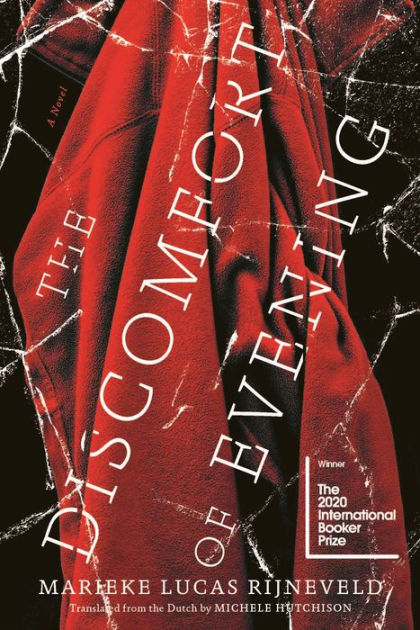
The Discomfort of Evening by Marieke Lucas Rijneveld (they, them, theirs) is a timely novel, fitting in perfectly with current-day discussions regarding the maturation and sexuality of pre-adolescents. Having received the coveted 2020 International Booker Prize in the wake of the ludicrous Cuties controversy and amid the release of the second, and equally cringey, season of PEN15, it seems an apt addition to the cannon of stories striving to tell an unadulterated version of what it’s like to be a pre-teen girl. It seems that regardless of the culture or of one’s upbringing, girlish puberty is destined to be the same: gross, awkward, cruel, and painful.
Written from the perspective of a 10-year old girl from a Reformed farming family in the Netherlands, The Discomfort of Evening follows the family’s decline following the death of their oldest son. The girl and her siblings grapple with death while also trying to adapt to their changing bodies and the hardships of farmlife. Though she turns to religion for support, the emotional absence of her parents ultimately proves too great an obstacle to face alone.
The novel’s title refers to the discomfort felt by dairy cows in the evening as they await the second milking for the day, but this discomfort is certainly also felt by both the protagonist Jas and by the reader. For Jas, it is the despair in response to her older brother’s death, the helplessness in wanting to heal her parents, and the anguish of feeling unloved and lost. For the reader, the truest discomfort in reading this novel is not the atrocities of the characters’ actions but rather the recognition of yourself.
When reading about the vulgarity of childhood, the unnecessary cruelty to living things, the morbid curiosity, the burgeoning sexuality, and the inability to explain these new, carnal sensations, there’s an inherent desire to want to shy away and deny those images as being part of the human experiences. Rijneveld writes with such utter honesty and simplicity that the book becomes a mirror, forcing the reader to remember the rawness of childhood. We do not want to see ourselves in the child who would harm God’s creatures, yet how many of us remember the satisfying crunch of squashing a bug as a kid? We do not want to think of children discovering their sexualities, yet we each have our own tale to tell about our own sexual awakenings and explorations. While perhaps the novel exaggerates these feelings and impulses, the root emotions are certainly relatable and universal.
This is the capacity that Rijneveld has as an author. They seemingly write to shock, yet by doing so, the haunting images and scenes that they create are seared into the reader’s consciousness, or at least the residual emotions are, leaving us with questions not so much about the book, but about the adolescent experience. Was I so cruel as a child? When was it that I learned to control those impulses? How do we protect growing youth from their own burgeoning sexuality? How do you protect a child from their own well-intentioned but ill-adapted parents?
The Discomfort of Evening is undeniably a well-written novel and an introduction to a rising international literary talent. While I strongly support the novel’s receipt of the International Booker, it is certainly not a book that I would recommend reading for pleasure. The book is dark and troubling, juxtaposing beautiful prose with the grim reality of small town life on a Dutch dairy farm. It creates a disturbing world that I can only hope, given the author’s background, is more fictional than autobiographical.
Disclaimer: As an affiliate of Bookshop.org, I will earn a commission if you click through and make a purchase.
